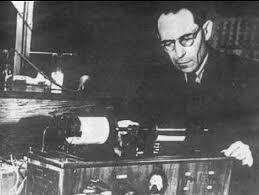
The first principle of thinking about the future is to admit we are a foolish species. We do dumb things. We get distracted easily. We repeat history. We are tribal. We are wired for hunting/gathering, not for "civilization". If you don't start here you are part of the problem.
When people talk about the future they tend to imagine we are some other species that doesn't have our staggeringly dumb track record. It's an amazing phenomenon. It's almost like futurists have never studied history, much less the history of people talking about the future.
I really am all for progress, and finding ways to be optimistic, but it must be rooted in reality and an honest appraisal of human nature if there is any hope of achieving it.
I think often about how the Wright brothers thought airplanes would end war. As in *permanently*. It's such a staggeringly naive misunderstanding of human nature. Our hardest problems are not technological but we desperately want to believe that they are.
• • •
Missing some Tweet in this thread? You can try to
force a refresh











